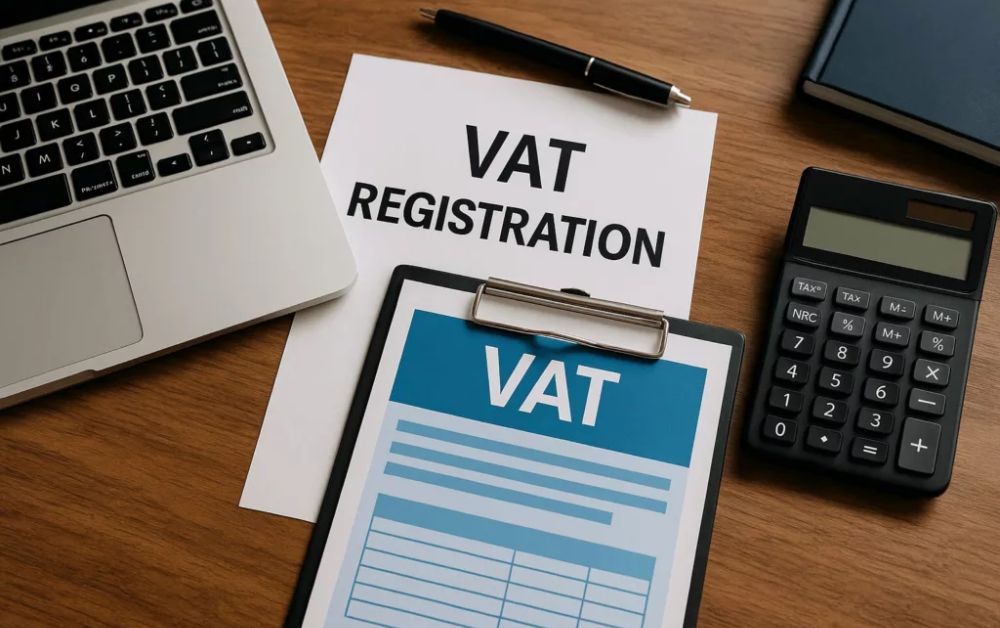VAT has become a crucial aspect of business operations, requiring companies to comply with government regulations. If you own an Audit service in Abu Dhabi, understanding the VAT registration process is essential to ensure compliance and avoid legal consequences. This guide provides a step-by-step overview of VAT registration in Abu Dhabi to help businesses navigate the process smoothly.
Understanding VAT and Its Importance
VAT is a consumption tax levied on the sale of goods and services. It is an indirect tax that businesses collect from consumers on behalf of the government. In the UAE, the standard VAT rate is 5%, and it applies to most goods and services, with some exemptions and zero-rated supplies. Registering for VAT is a legal obligation for businesses that meet the specified threshold. It allows businesses to charge VAT on taxable supplies, claim input VAT on purchases, and comply with the Federal Tax Authority (FTA) regulations.

Who Needs to Register for VAT?
Businesses in Abu Dhabi must register for VAT if their taxable supplies and imports exceed the mandatory registration threshold. There are two types of VAT registration:
- Mandatory Registration: If a business has an annual turnover exceeding AED 375,000, it must register for VAT.
- Voluntary Registration: Businesses with taxable supplies and imports between AED 187,500 and AED 375,000 can opt for voluntary registration.
- Exemptions: Some businesses may be exempt from VAT registration, particularly those dealing with specific financial services, residential properties, and local passenger transport.
Step-by-Step Process for VAT Registration in Abu Dhabi
Step 1: Determine Eligibility Before initiating the registration process, businesses must assess their taxable supplies, imports, and expenses to determine whether they meet the mandatory or voluntary registration threshold. Proper financial records and bookkeeping are essential for accurate assessment.
Step 2: Create an e-Services Account with the FTA VAT registration conducted online through the Federal Tax Authority (FTA) portal. Businesses need to create an account on the FTA’s e-Services platform by providing their email address, setting up login credentials, and verifying their account.
Step 3: Gather Required Documents To complete the VAT registration process, businesses must submit several documents, including:
- Trade license
- Passport and Emirates ID of the business owner/partners
- Memorandum of Association (MOA)
- Business contact details
- Bank account details
- Financial statements or revenue records
- Description of business activities
Ensuring all documents are valid and up-to-date is crucial for a smooth registration process.
Step 4: Complete the VAT Registration Form Once logged into the FTA portal, businesses must fill out the VAT registration form. The form requires information such as:
- Business details (legal name, trade license number, and address)
- Contact information
- Bank account details
- Business activities and turnover
- Import and export details
- Tax group registration (if applicable)
Step 5: Submit the Application After completing the form and attaching the necessary documents, businesses must review their application for accuracy and submit it online. The FTA may take several working days to process the application.
Step 6: Receive VAT Registration Certificate Once the FTA approves the application, businesses receive a VAT registration certificate containing their Tax Registration Number (TRN). The TRN is essential for issuing tax invoices, filing VAT returns, and complying with tax obligations.
Post-Registration Compliance and Responsibilities
After VAT Registration in Abu Dhabi , businesses must fulfill several obligations to remain compliant with the FTA regulations:
- Charging VAT on Sales: Businesses must apply a 5% VAT on taxable supplies and issue tax invoices with the TRN.
- Maintaining Proper Records: Accurate records of sales, purchases, and expenses must be kept for at least five years.
- Filing VAT Returns: Registered businesses must file VAT returns with the FTA, usually on a quarterly basis, and settle any payable VAT.
- Paying VAT on Time: Timely VAT payment is essential to avoid penalties and legal consequences.
- Handling VAT Refunds: Businesses may claim input VAT refunds for eligible expenses.
Penalties for Non-Compliance
Failure to comply with VAT regulations can result in penalties. Common violations include late registration, failure to submit VAT returns, incorrect tax invoices, and late payments. The FTA imposes fines and penalties to ensure businesses adhere to tax laws.
Benefits of VAT Registration
While VAT registration is a legal requirement, it also offers several advantages:
- Enhances business credibility and trustworthiness
- Allows businesses to claim input VAT refunds
- Facilitates smooth transactions with VAT-registered suppliers and customers
- Ensures compliance with UAE tax laws, avoiding penalties
Seeking Professional Assistance
Navigating the VAT registration process can be complex, especially for new businesses. Seeking professional assistance from tax consultants or accounting firms can simplify the process and ensure compliance. Experts provide guidance on VAT registration, filing returns, record-keeping, and compliance with FTA regulations.

Conclusion
VAT Registration Abu dhabi is a crucial aspect of running a business in Abu Dhabi. Understanding the registration process, compliance requirements, and benefits ensure businesses operate smoothly and adhere to tax laws. By following this step-by-step guide, businesses can successfully register for VAT and manage their tax obligations efficiently. For expert assistance, consulting a professional tax service provider can help streamline the VAT registration and compliance process, ensuring legal and financial security.


